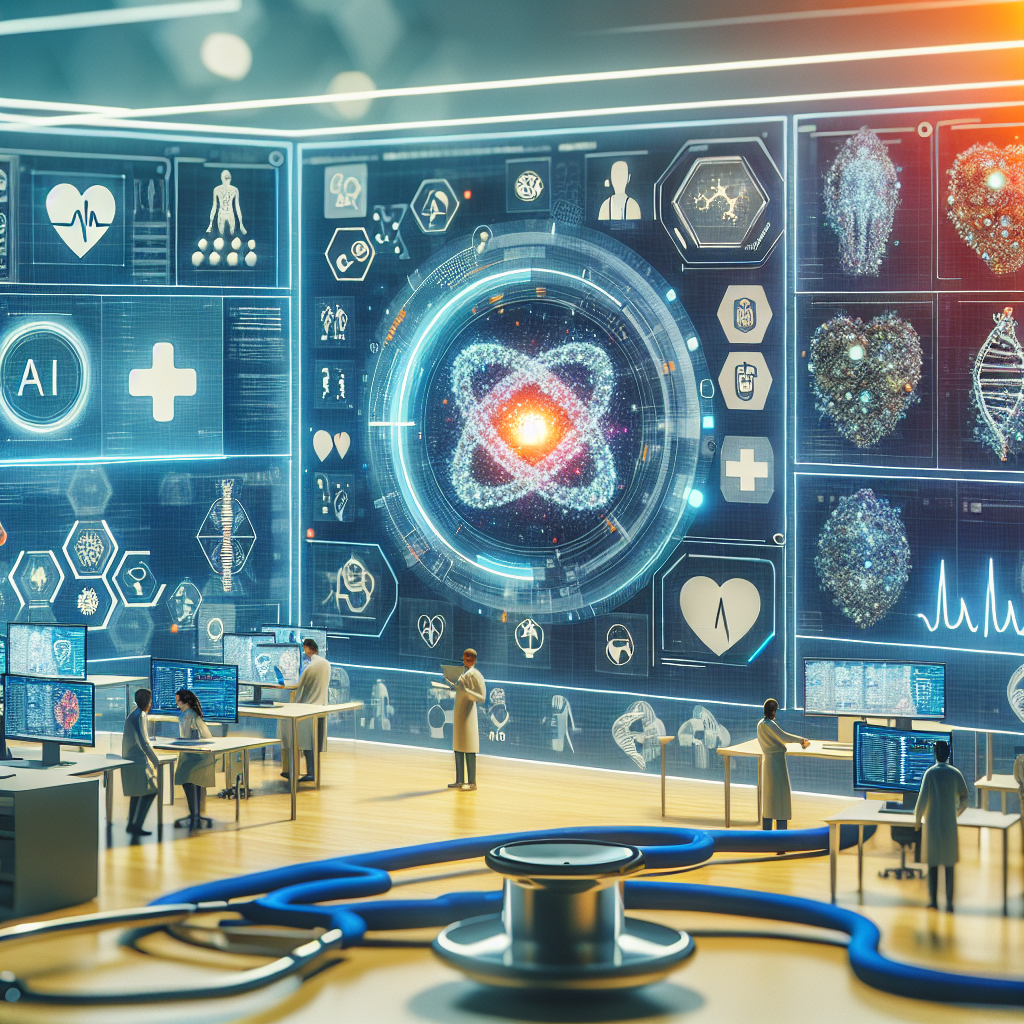[ad_1]
Generative AI is transforming various industries, with medicine leading at the forefront of this innovation. It introduces unprecedented capabilities for creating highly personalized patient care and treatment strategies. This article explores the critical roles of generative AI in medicine, highlighting its potential to redesign treatment plans and improve patient outcomes dramatically.
What is Generative AI?
Generative AI refers to algorithms and techniques that leverage machine learning models to generate new data, insights, or materials. In the realm of medicine, this technology is applied to simulate medical data, design drugs, and create customized medical solutions for individual patients.
Applications of Generative AI in Medicine
Generative AI’s applications in medicine are vast and varied. From drug discovery to personalized medicine and treatment planning, its potential to enhance care quality while reducing costs and inefficiencies is significant. Here are some critical applications:
- Drug Discovery: AI can forecast how different chemicals will react together, speeding up the creation of new pharmaceuticals.
- Predictive Diagnostics: Using AI to analyze medical imaging or genetic information can lead to early detection of diseases not easily identified by traditional methods.
- Treatment Personalization: AI-driven models can analyze patient data to tailor specific treatment plans that suit individual physiological makeup.
- Prosthetic Design: AI algorithms can help in designing custom prosthetics by predicting suitable materials and structures for enhanced compatibility and functionality.
The Impact of Generative AI on Patient Outcomes
Introducing AI into the medical field has markedly improved patient outcomes in various areas:
“Generative AI enables a profound shift in treatment methodologies by focusing on customization, efficiency, and prediction, thereby enhancing both the quality and the accuracy of medical interventions.”
The integration of generative AI into healthcare systems enables more precise diagnosis, timely intervention, and highly customized treatment plans, thereby improving the overall efficiency of medical processes and patient satisfaction.
Challenges and Considerations
Despite its benefits, the integration of generative AI in medicine comes with its set of challenges:
| Challenge | Description | Possible Solutions |
|---|---|---|
| Data Privacy | Handling sensitive patient data raises security and privacy issues. | Implementing stringent data protection laws and encrypted databases. |
| Regulatory Compliance | Ensuring AI-powered solutions meet existing healthcare regulations. | Working closely with regulatory bodies to form AI-specific guidelines. |
| Ethical Concerns | The potential misuse of AI-generated data and decisions. | Establishing clear ethical standards and continuous monitoring of AI practices. |
Future Prospects
The future of generative AI in medicine promises further innovation and integration. Advanced AI models such as GPT-4 and the latest iterations of neural networks are expected to drive forward methodologies that could potentially automate more complex medical tasks, from surgery to real-time patient monitoring.
Conclusion
Generative AI is redefining the landscape of medical treatment by offering versatile, efficient, and highly personalized care options. It not only enhances patient outcomes but also streamlines healthcare processes. However, moving forward, it is crucial for medical professionals, technologists, and regulators to collaborate closely to address the ethical, privacy, and regulatory challenges associated with its use.
FAQs
- What is Generative AI?
- Generative AI involves using machine learning models and algorithms to create data, insights, or materials that can be used for various applications including in medicine.
- How does Generative AI improve patient care?
- It enhances personalized treatment plans, speeds up drug discovery, facilitates early disease detection, and develops better prosthetics, among other benefits.
- What are the main challenges associated with Generative AI in medicine?
- Key challenges include ensuring data privacy, regulatory compliance, and addressing ethical concerns regarding AI use in medicine.
[ad_2]
